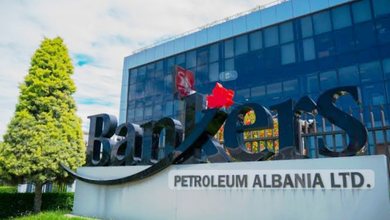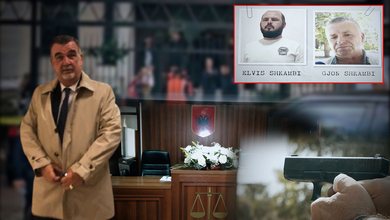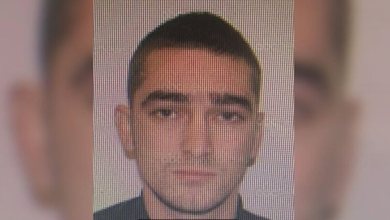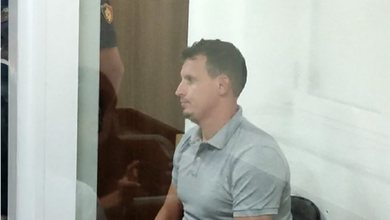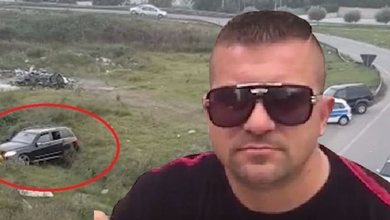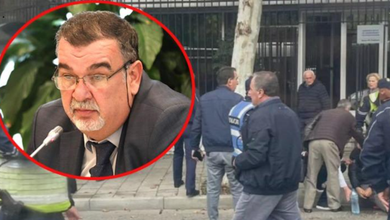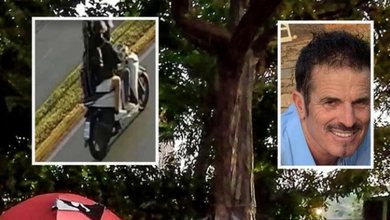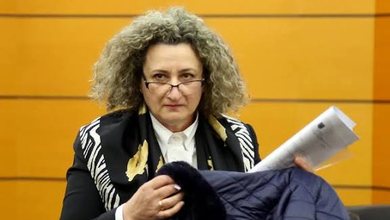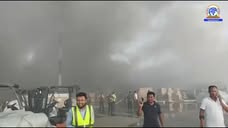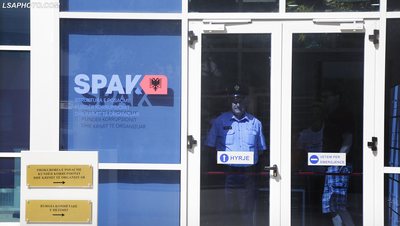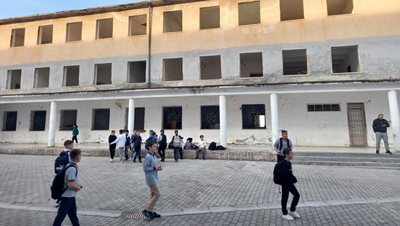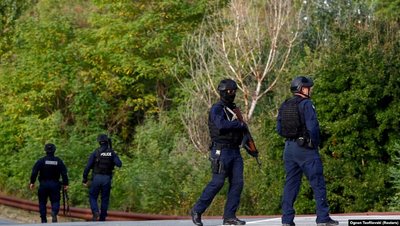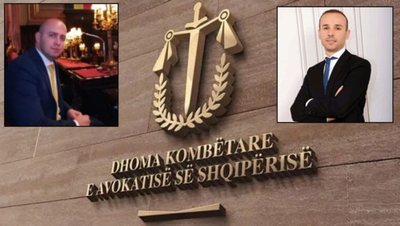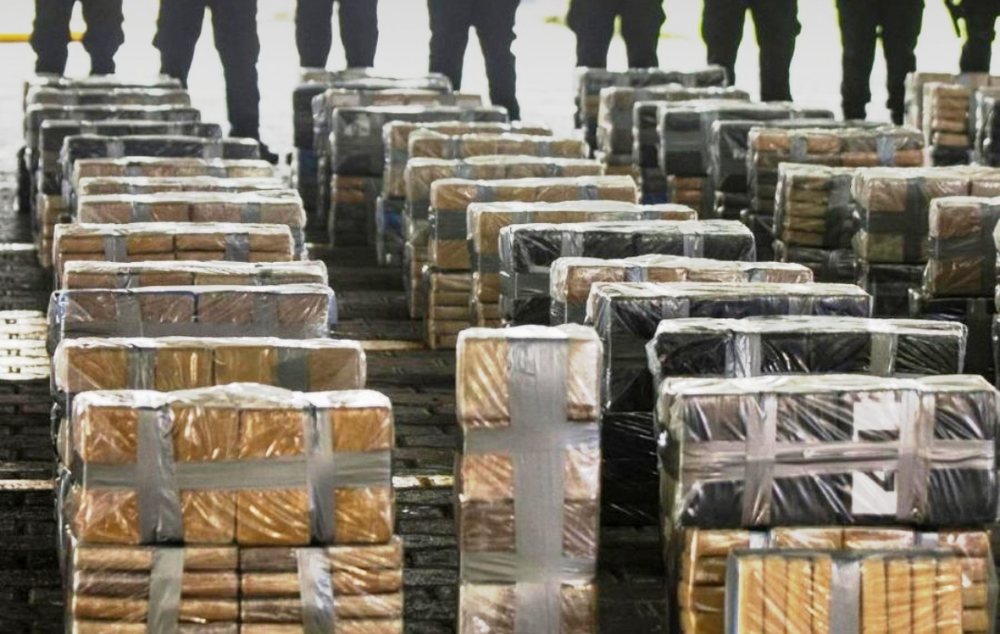
Organized criminal groups, whose members originate from the Western Balkan countries, are using a new route to smuggle cocaine from Latin America to Europe: through West African countries. This was noted by researchers from the Global Initiative against Transnational Organized Crime (GI) in a report published in September.
Sasha Djordjevic, co-author of the report, explains to Radio Free Europe/Radio Liberty that criminal groups from the Western Balkans use the route through West Africa to traffic cocaine, mainly due to West Africa's favorable geographical position, which is located between Latin America, where cocaine is produced, and European markets, where it is sold.
The report is based on 70 interviews with investigative journalists, police, prosecutors, academics, officials and private sector workers at ports and airports, actors involved in the cocaine trade, drug users and health workers in the Western Balkans, Latin America and West Africa.
"From 2019 to 2024, police, mainly in the European Union, have focused on intercepting cocaine that comes directly, for example from Ecuador to the Netherlands, and not through some transit routes" Sasha Djordjevic, Global Initiative against Transnational Organized Crime
Djordjevic points out that organized criminal groups from the Western Balkans have strengthened their presence in coastal countries of West Africa. Among these countries are: Sierra Leone, Senegal, Guinea-Bissau, Guinea and Gambia.
The use of this route for trafficking is also confirmed by EUROPOL, the European law enforcement agency.
"The most prominent criminal networks have their representatives (intermediaries and sometimes entire units) located in the countries of origin in South America or in logistics centers (in West or South Africa)," EUROPOL said in response to a question from Radio Free Europe.
He stressed that a special operational group has been formed to respond to the threat posed by organized narcotics smuggling.
This group, according to EUROPOL, unites the countries of the Western Balkans, the European Union and the entire world, in order to track criminal networks.
Organized criminal groups from the Western Balkans have been identified by international organizations, such as EUROPOL and INTERPOL, as key players in the smuggling of cocaine from Latin American countries - including Brazil, Colombia and Ecuador - to markets in Western European countries, especially the Netherlands.
This influence did not arise overnight, but is the result of three decades of development of criminal groups from the Western Balkans, which today position themselves as very powerful actors in the global cocaine supply chain. Sasha Djordjevic, Global Initiative against Transnational Organized Crime
The new cocaine smuggling route, according to Djordjevic, presents an additional challenge, because organized criminal groups from the Western Balkans also use West African countries as drug depots - which then facilitates their distribution and transportation.
Positioning in these countries, as well as in Latin American and European countries, is made possible through corruption.
"They don't have the support of all members of local government. But organized crime, including that which passes through West Africa, simply cannot function without corrupt people who hold important positions, mainly in port security, customs and the police," says Djordjevic.
He adds that this route also developed due to the increasing demand for cocaine in Europe - mainly in the Western European market.
This is also shown by data on the concentration of cocaine residues in the wastewater of major European cities, collected by the European Union Drugs Agency (EUDA).
The June 2025 report shows that cocaine use has increased in major European cities, as residues in wastewater are higher in 39 of the 72 cities monitored - including Brussels, Zagreb and Maribor - during 2023–2024.
According to EUDA data, cocaine is the second most used illegal drug in Europe after cannabis, and in just three years, the amount of cocaine seized in the European Union has doubled.
All Western Balkan countries cooperate with EUROPOL to combat cocaine smuggling.
According to the GI report, organized criminal groups from the Western Balkans are divided according to the language they use - into those who speak Slavic languages and those who use Albanian.
However, a feature of organized crime is its multinational nature, and the report shows that there is cooperation between different groups.
According to Djordjevic, cooperation between police and prosecutors in the region to prevent cocaine smuggling works much better when it is done with the mediation of international organizations.
"With EUROPOL's mediation, cooperation works much better, especially in cases that are not politically sensitive. But cooperation weakens when cases are politically sensitive," says Sasha Djorgjevic, Global Initiative against Transnational Organized Crime.
As one of the biggest challenges in cooperation, he mentions, among other things, the fact that investigative bodies focus mainly on seizures and not on the flow of money.
"Second, the impact of demand reduction activities, in terms of prevention, is minimal and, in general, there is very little discussion about demand reduction. There is more talk - and always in a bombastic manner - when a seizure occurs," says Djordjevic.
But, he adds that in the Western Balkan countries there has been a lot of progress in confiscating assets acquired through crime.
"This, in a way, is a tool for preventing and combating organized crime," says Djordjevic.
SERBIA
The activities of Serbian citizens, according to the report of the Global Initiative against Transnational Organized Crime, have been recorded in Guinea, Senegal and Sierra Leone.
Serbian national Miroslav Starcevic is identified in the report as the leader of a group that used Sierra Leone as a center for storing cocaine and packaging it in containers.
The group he leads is related to the Kavaçi criminal clan, originally from Montenegro.
The Kavač and Shkalar clans originated in Montenegro. They are two criminal clans at war with each other. In the conflicts between them, more than 60 people have lost their lives since 2014. Two investigative procedures are being conducted against Starčević at the Public Prosecutor's Office for Organized Crime.
The Global Initiative report also mentions Goran Nesic as one of the first intermediaries of organized criminal groups - Serbian and Montenegrin - in West Africa.
Goran Nesic was arrested in Brazil in 2011. Seven years later, he was extradited to Serbia, where he was sentenced to eight years in prison.
After his arrest, the business was continued by his son, Aleksandar Nesic, according to the report. He was also arrested in Brazil in October 2023.
According to the Organized Crime Prosecution, he was sentenced based on a plea agreement in November 2019.
Until the publication of this article, the Serbian Ministry of Interior did not respond to Radio Free Europe's questions about what it knows about the involvement of Serbian citizens in cocaine trafficking through West Africa and whether the Serbian police cooperate with the responsible authorities of African countries in these cases.
BOSNIA AND HERZEGOVINA
The report shows that a group linked to the Shkalari clan, led by a citizen of Bosnia and Herzegovina, uses the Spanish island of Gran Canaria as a main base for the distribution of cocaine coming directly from Brazil and several West African countries, such as Guinea-Bissau and Sierra Leone.
The report names Edin Gačanin as a key figure in international drug trafficking. He is originally from Bosnia and Herzegovina, but has Dutch citizenship.
Available data, according to the Global Initiative report, shows that Gachanin has conducted operations in several African countries, especially South Africa.
Gaçanin, arrested in Dubai in 2023, has been convicted in absentia for smuggling large quantities of narcotics from Colombia, Peru and Ecuador to Europe.
Ai figuron gjithashtu në listën e sanksioneve të Shteteve të Bashkuara, të cilat e kanë identifikuar si udhëheqës të kartelave “Tito” dhe “Dino”.
Në prill të vitit 2025, në Bosnje dhe Hercegovinë u arrestuan 23 persona, në bashkëpunim me EUROPOL-in, për lidhje me Gaçaninin.
Të arrestuarit janë zyrtarë të lartë policorë dhe të institucioneve të zbatimit të ligjit, të dyshuar për krim të organizuar, pastrim parash, trafik të drogës, keqpërdorim të detyrës dhe marrje ryshfeti.
Raporti i Iniciativës Globale përmend edhe një shtetas të Bosnjës - pjesëtar i klanit kriminal Shkalari - i cili përdorte Guinea-Bisaun dhe Siera Leonen për të magazinuar drogë. Më pas, drogën e dërgonte në Ishujt Kanarie, nga ku shitej në tregun evropian.
Raporti thekson se, pavarësisht kërkesës së kuqe të INTERPOL-it nga Belgjika, përpjekjet për ekstradimin e tij “janë vështirësuar, për shkak të marrjes së shtetësisë turke”.
Agjencia për Hetime dhe Mbrojtje e Bosnje e Hercegovinës nuk iu përgjigj pyetjeve të Radios Evropa e Lirë se çfarë informacionesh ka për përfshirjen e shtetasve të Bosnje dhe Hercegovinës në trafikimin e kokainës përmes Afrikës Perëndimore.
Në periudhën nga fillimi i vitit 2021 deri më 3 shtator, 2025, Gjykata e Bosnje dhe Hercegovinës ka dhënë 37 vendime të formës së prerë për veprën penale të trafikut të paligjshëm të drogës, tregojnë të dhënat që REL-i i ka siguruar nga kjo gjykatë.
MALI I ZI
Sipas raportit, klanet Kavaç dhe Shkalar, me origjinë nga Mali i Zi, kanë operacione në Siera Leone dhe Senegal.
Raporti tregon se klani Kavaç operon në portet e Brazilit dhe Siera Leones, dhe përdor ndërmjetës që menaxhojnë transportin dhe logjistikën.
Si aktor kryesor për operacionet e klanit Kavaç në Afrikën Perëndimore identifikohet Radoje Zvicer, ndërsa klani Shkalar operon kryesisht përmes bashkëpunëtorëve nga Bosnje dhe Hercegovina dhe Shqipëria.
Në nëntor të vitit 2024, me kërkesë të autoriteteve austriake, EUROPOL-i përditësoi urdhrin e arrestit për Zvicerin, i cili besohet se udhëheq klanin Kavaç - organizatë kriminale e specializuar në kontrabandën e kokainës.
Zyra e Prokurorit të Shtetit në Mal të Zi, në janar të vitit 2025, hapi një hetim kundër Radoje Zvicerit dhe 12 anëtarëve të tjerë të klanit kriminal Kavaç, të cilët dyshohen për vrasjen e Risto Mijanoviqit, në nëntor të vitit 2020.
Që nga viti 2020, kur u plagos rëndë në Kiev, Radoje Zvicer është zhdukur.
Sipas dokumenteve evropiane, ai ka përdorur të paktën 15 identitete të rreme.
Ministria e Punëve të Brendshme e Malit të Zi nuk iu përgjigj pyetjeve të REL-it lidhur me ndonjë informacion për përfshirjen e qytetarëve malazezë në trafikimin e kokainës nga Amerika Latine drejt Evropës, përmes vendeve të Afrikës Perëndimore.
Përgjigje nuk dhanë as gjykata dhe prokuroria kompetente, nga të cilat REL-i kërkoi të dhëna për numrin e aktakuzave të konfirmuara dhe të vendimeve të formës së prerë për trafikim të narkotikëve në periudhën 2021-2025.
MAQEDONIA E VERIUT
Citizens of North Macedonia are mentioned in the GI report as part of Albanian-speaking criminal groups.
In response to questions from Radio Free Europe, the Ministry of Interior of North Macedonia stated that its citizens, as members of international organized crime groups, are involved in organizing the procurement and transportation of cocaine from its countries of origin - South America - to Europe.
"The Ministry of Interior and the services for combating illegal drug trafficking have established excellent cooperation with the countries of the region and the EU, and this is done through INTERPOL, EUROPOL or bilateral contacts," the North Macedonian Ministry of Interior stated.
According to data provided by the Criminal Court in Skopje, at the request of Radio Free Europe, in the period from 2021 to 2025, 257 final decisions were issued for the creation or participation in an organized criminal network for drug trafficking.
KOSOVO AND ALBANIA
Albanian-speaking criminal groups, according to the GI report, consist of individuals from Albania, Kosovo, North Macedonia, and Montenegro, and associates from other nationalities.
"These groups in Ecuador have built an important transportation hub over the past decade, establishing close cooperation with local gangs and gaining access to ports," the report says.
The report notes that since 2019, these groups have also taken root in Brazil, linking criminal groups to the West African route. Their activities have been recorded in Gambia, Guinea, Sierra Leone and Senegal.
The report also says that Albanian customs consider exports from West Africa to be low risk and do not control them as strictly as exports from Latin America - especially from Ecuador.
Radio Free Europe sent questions to the relevant authorities in Kosovo and Albania regarding this report, but, by the time of publication of this article, had not received a response.
This investigation was prepared by journalists: Milla Manojlović, Dženana Karabegović, Zorana Spasovska, Srgjan Janković//REL



